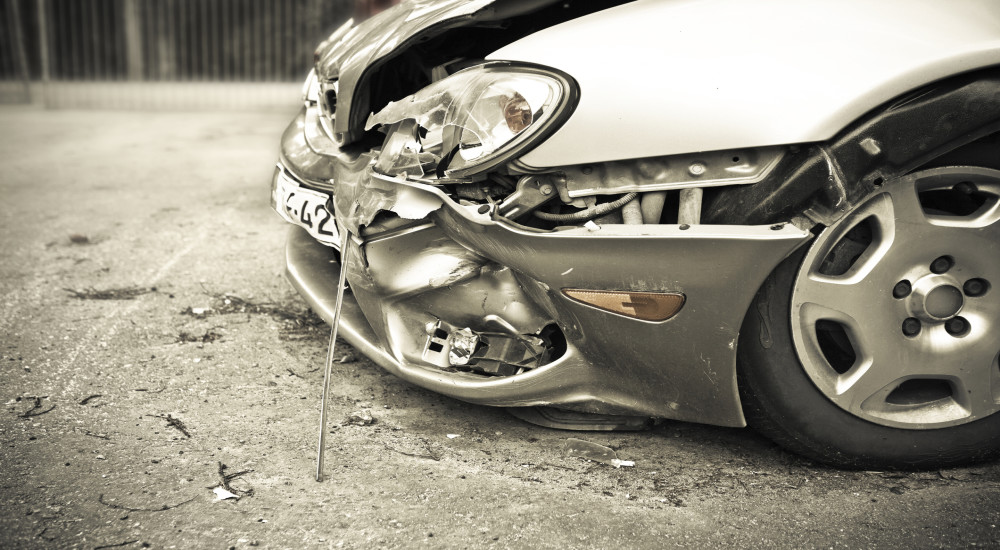Anybody who’s bought car insurance knows that your premiums are unlikely to be the same as your neighbor’s. Insurance companies use a variety of factors to determine the rates they will charge you on your car insurance. Different aspects about your driving profile help them determine the level of risk, statistically speaking, that accompanies insuring your car. If you fit the profile of someone who might be more likely to get into a car accident and file a claim with the insurance company, you’ll generally face higher premiums across the board.
But how do insurers decide what level of risk you pose? We’ve broken down the major factors that insurance providers consider when determining how high a premium to charge you for car insurance. You may be surprised by what they think matters.

Number of claims filed in the last 3 years
When filling out a car insurance application form, you will notice that most insurers ask you if you’ve made a claim in the last 3 years. Generally speaking, it’s safe to say that if you have made a claim in the recent past, you can expect to be given a higher premium.
Now, some of you may be wondering why you should be punished with a more expensive premium if someone who was texting while driving rear-ended you through no fault of your own two years ago. The reason is that insurers use statistics to infer certain things about how safe your driving behavior is based on recent claims history. Those statistics show that people who have recently had to file a claim are generally more likely to file a claim again while insured under their policy. When you fall into a pool of people that tends to cost insurers more money, even if you’re a safe driver, you’ll be charged a higher premium to reflect that higher level of risk in covering that pool of people.
Driving experience
Another factor that impacts the cost of your car insurance is how much driving experience you have. Though there can be exceptions, a good rule of thumb is that more years of driving experience translate to lower premiums, as drivers with more years of experience are perceived as being less likely to get into a car accident. For example, our study of the cheapest car insurance premiums in Singapore for different driver profiles found that drivers with 10 years’ experience and a record of safe driving can pay hundreds, even thousands of dollars less per year on car insurance premiums than relatively inexperienced drivers.
Different insurers may ask you about this in different ways. Some companies ask when you received your driving license, and others ask how many years of driving experience you have. Either way, the good news is that, while you may find yourself being charged through the roof in the earlier part of your driving career, you can expect to pay lower premiums as time passes (assuming you’re also a safe driver).
No Claims Discount
Your No Claims Discount is another quite simple way insurers can see nearly immediately if you’re a low-risk driver to insure. The reason why is obvious: you can only build a high NCD by maintaining a record of safe driving without accidents for which you are deemed more than 20% at-fault.
Keep in mind that just because you have a NCD of 50% does not necessarily mean that your premium will be discounted by exactly 50%. Your NCD is merely one factor that insurers use to weigh the risk of insuring you. However, you can generally expect to see discounts on your premium that are in the approximate range of your NCD%.
Given how much your NCD can impact your premium, it can be a good idea to buy a car insurance plan that has a NCD Protector feature. With this feature, even if you do get into an accident and are considered at-fault, your NCD will be protected from dropping by the customary 30%.
Age
Your age also factors heavily into the cost of your car insurance premium. Our study of average car insurance premiums across different age groups found that drivers in their 20s tend to pay by far the most for car insurance in Singapore, whereas drivers in their 40s tend to pay the least. As with other factors included on this list, insurers make this determination after analyzing their claims data and seeing which age groups tend to get in the most accidents, file the most claims and ultimately cost them the most to cover.
Gender
Car insurance premiums may also change depending on your gender. While not every insurer necessarily calculates this the same way, insurance companies in Singapore generally charge higher premiums to men than they do to women. This is because many insurers’ claims data indicate that men are significantly more likely to get into an accident than women are. Our study on average car insurance costs in Singapore found that a female driver might pay anywhere from S$40 to S$400 less, on average, than a male driver with the same exact driving profile on her car insurance premium.
Another thing to keep in mind is that not only can your gender affect the car insurance premiums you’re charged, but sometimes your marital status can matter, too.
Your Car
There are multiple aspects of your car that can influence how expensive your car insurance
premium is. Here are a few of the main considerations:
- Is your car a luxury vehicle or an SUV? Cars that have more expensive parts will cost more to insure. Check out our study on the average cost of insuring different types of cars to see how much you might expect to pay to insure yours.
- What’s your car’s engine capacity? Generally, the higher the engine capacity of your vehicle, the higher your premium will be.
- How old is your car? Insurers might get at this by asking you when your vehicle was first registered, which year it was manufactured, or even both. Our study on how vehicle age affects car insurance premiums found that insurers tend to charge the most for very new cars, and incrementally increase premiums after cars pass a certain threshold of age (around 10 years). However, as our study showed, this can vary widely based on the insurer.
Occupation
Did you know that even your job can affect how expensive your car insurance premium is? Though not every insurer will calculate this the same way, people with outdoor jobs tend to be charged a bit more than people with indoor jobs. Some insurers can get even more specific, charging more, for example, to insure a salesman who might spend a fair amount of time traveling around than they would a housewife or lawyer.
When and how do you use your car?
Insurers also care about when you drive your car and what you use it for. If you regularly use your car in the course of your work, you’ll tend to pay more for car insurance than you would if you only used it for leisure or to commute. People with flexible schedules who don’t necessarily need to drive their cars during peak hours can get significantly discounted car insurance premiums as off-peak drivers, as the likelihood of getting into a car accident during quieter parts of the day is substantially less than during busy hours when lots of people are on the roads.
Parting Thoughts
Because there are so many factors that go into determining how much you’ll be charged for car insurance, it can be very difficult to make accurate general statements about, for example, the cheapest car insurance plan on the market. However, our team at ValuePenguin has devoted hours of time to understanding the car insurance market in Singapore to help regular people make the best financial decisions for themselves and their families. If you’d like to read more about insurance in Singapore, consider visiting our website.
The article What Determines Your Car Insurance Premium? originally appeared on ValuePenguin.
ValuePenguin helps you find the most relevant information to optimise your personal finances. Like us on our Facebook page to keep up to date with our latest news and articles.
More From ValuePenguin:
Source: ValuePen



